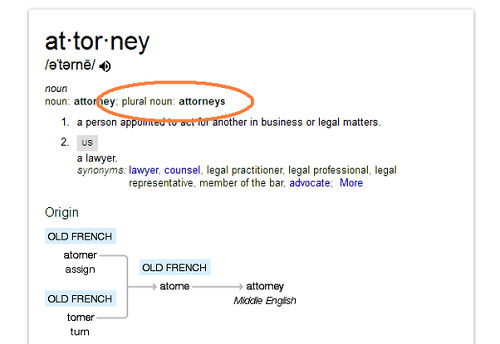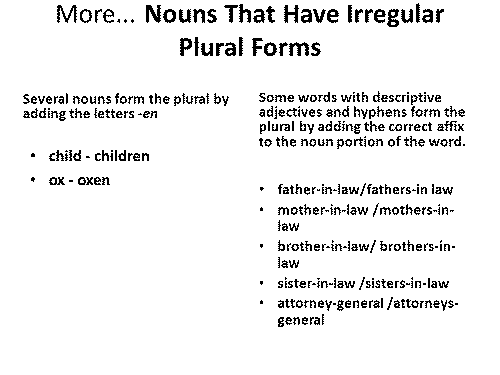 |
| By https://lersus.com/plural-of-attorneys/ |
An attorney at law in plural form is not allowed to file a petition or request for a writ of mandate against another lawyer in any state or federal court. This is even if a stay or temporary restraining order has been issued. Because he or she is representing two clients and representing both individually and jointly with his or her law firm, he or she is not allowed to represent a third party in a court proceeding.
What Is An Attorney At Law In Plural Form?
An attorney at law in the plural form is required to file a current individualized statement of information to the court. This statement contains "all information that would assist the court in deciding the matter fairly." It is this individualized statement that is most often called the pleadings in the case.
 |
| By https://slideplayer.com/slide/6164085/ |
While representing criminal cases, an attorney at law in plural form cannot be permitted to present evidence that he or she did not personally witness or participate in. He or she cannot allow other people to testify on his behalf, even if it conflicts with what he says in court.
An attorney in a criminal case cannot use materials, such as photographs, from other sources, unless the materials are used to show some element of reliability and probative value to support the statement he or she is about to make. The same applies to photographs.
In a criminal case, an attorney at law in plural form cannot play an active role in planning or practicing the defense. He or she cannot get anything written for him or her by members of the defense team, or from anyone connected with the defense. The same applies to notes, memoranda, and reports, prepared for him or her.
A criminal defense attorney who is representing two or more clients in a case cannot stop representing one of them. The client he or she represents can ask for a continuance, or leave. If he or she refuses to leave, the attorney at law in plural form is not allowed to join with his or her client in the defense of the case.
The rules concerning the relationship between an attorney and his or her client are quite rigid. An attorney at law in plural form can only represent one client at a time. An attorney at law in plural form cannot represent the same client more than once.
When a person who has been arrested appears in court, an attorney at law in plural form is unable to admit him or her into his or her legal team. This means that the attorney does not have access to all the facts, or information, the prisoner might be able to provide to a team of experts. a team of legal professionals, without involving the client in the defense of his or her case.